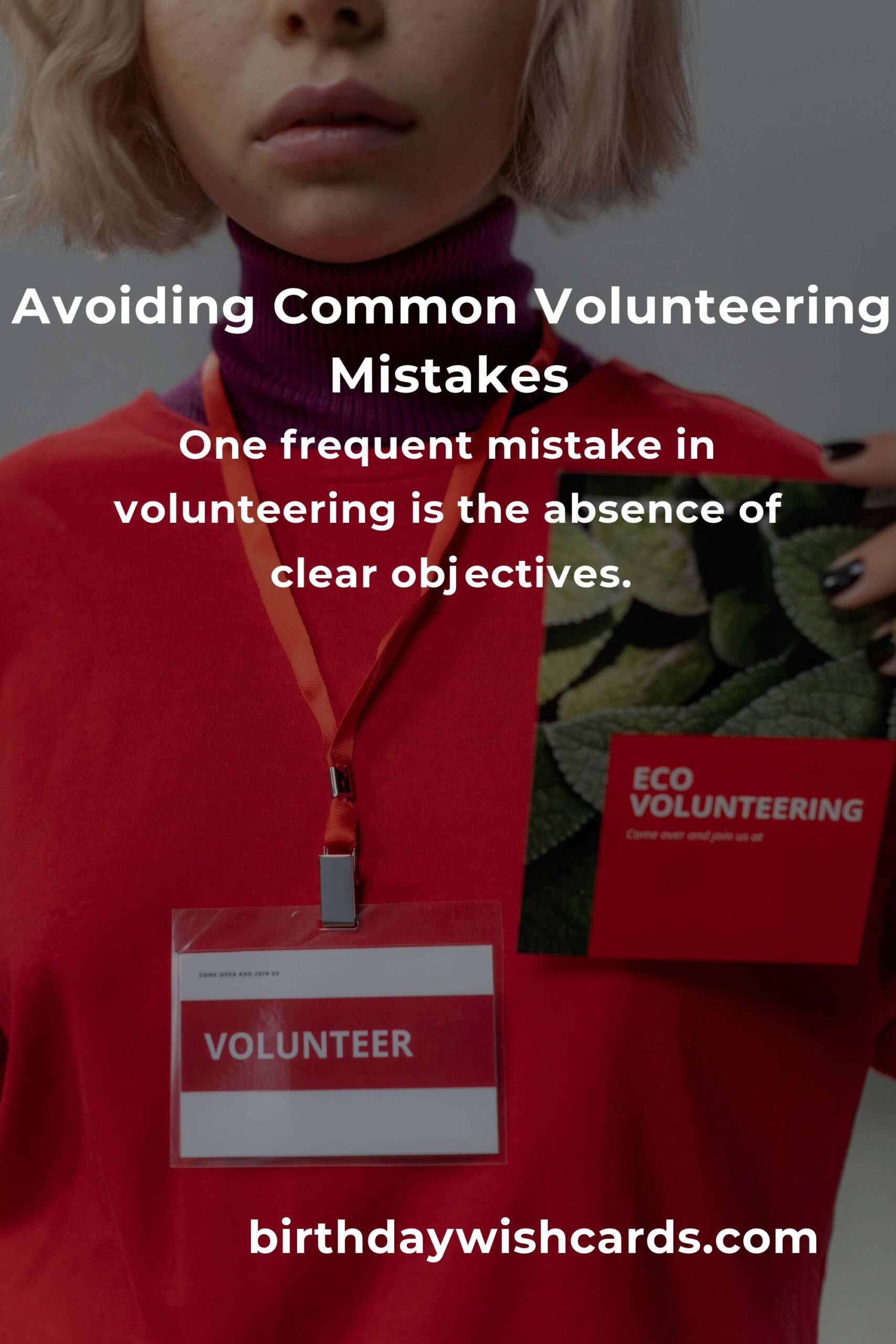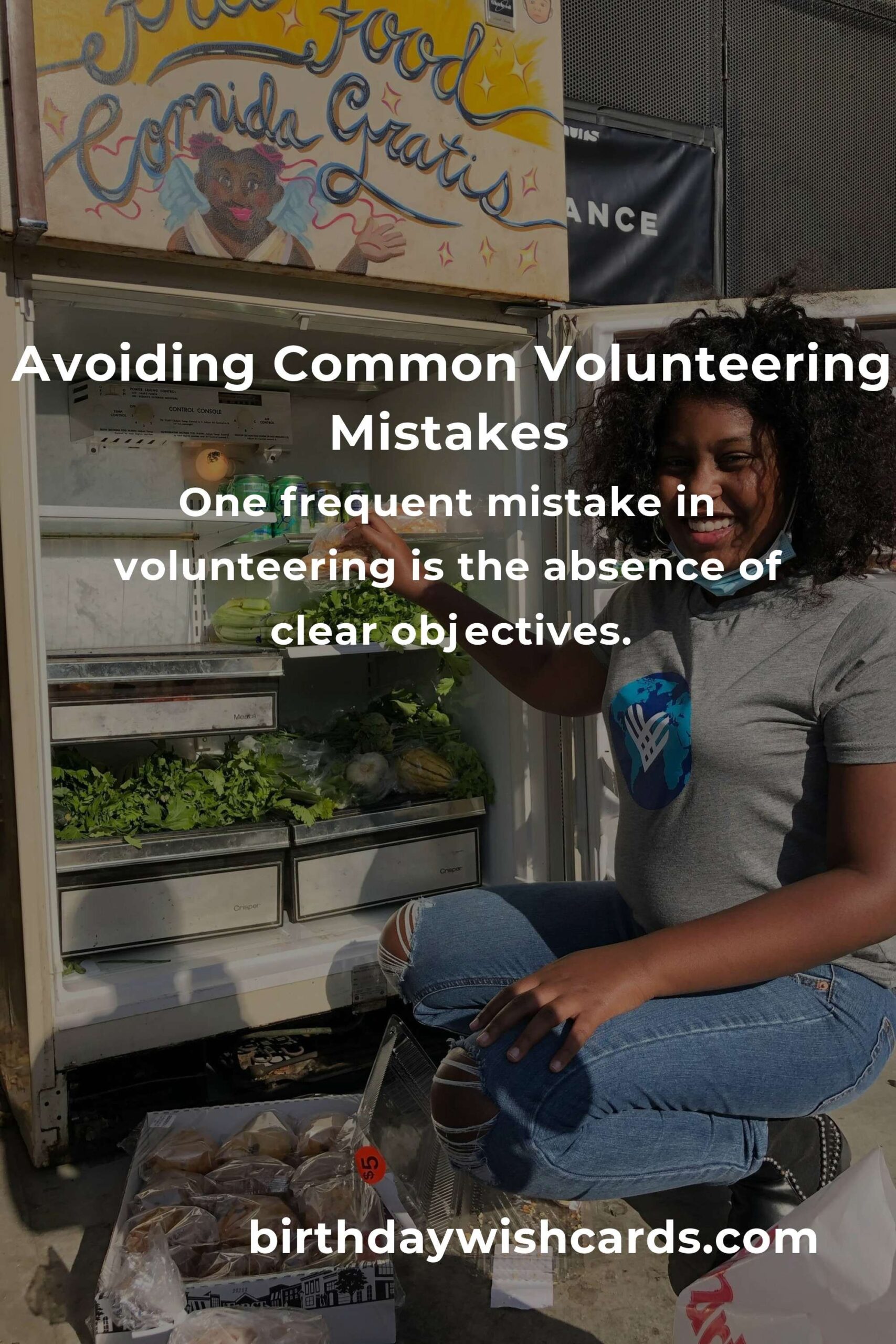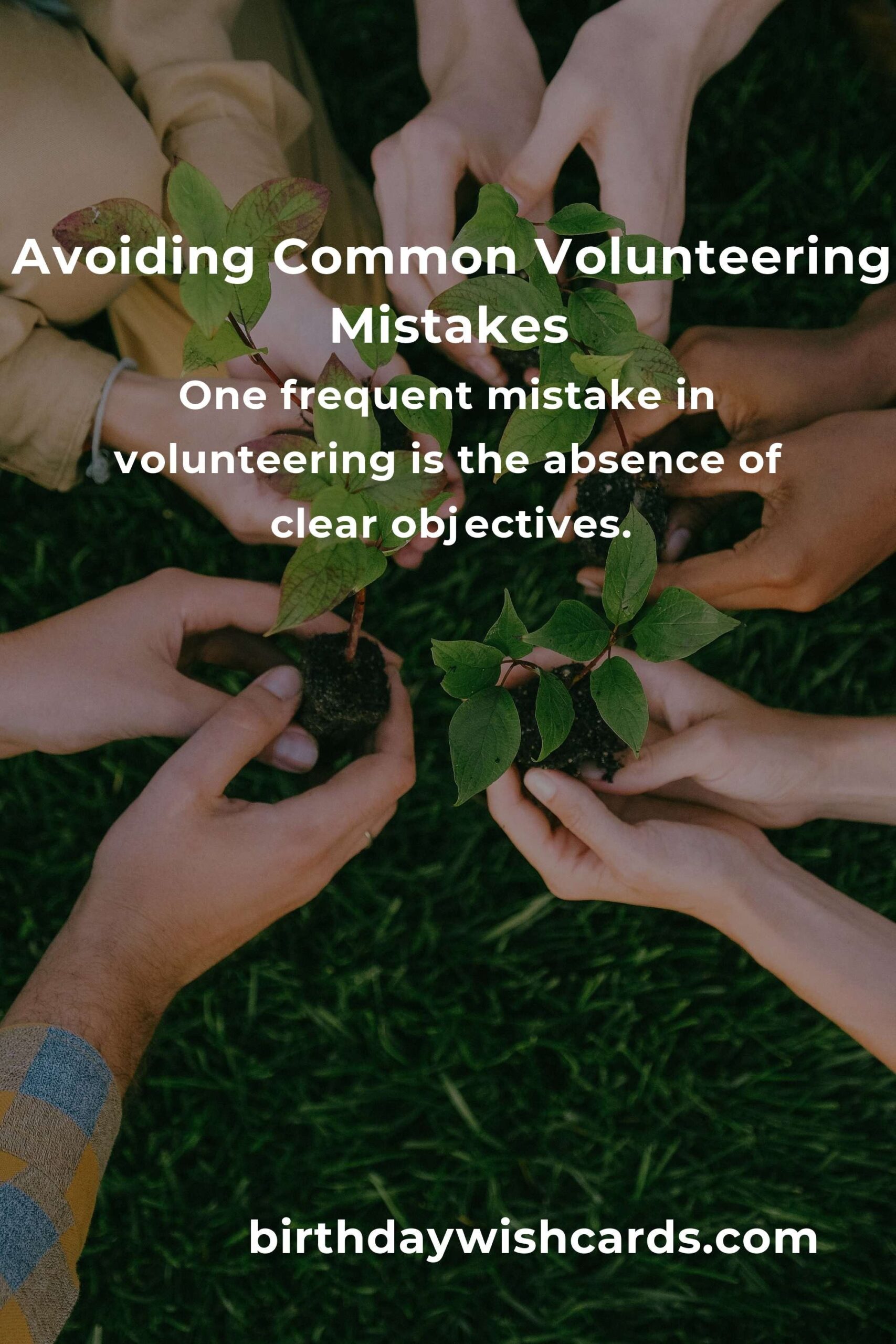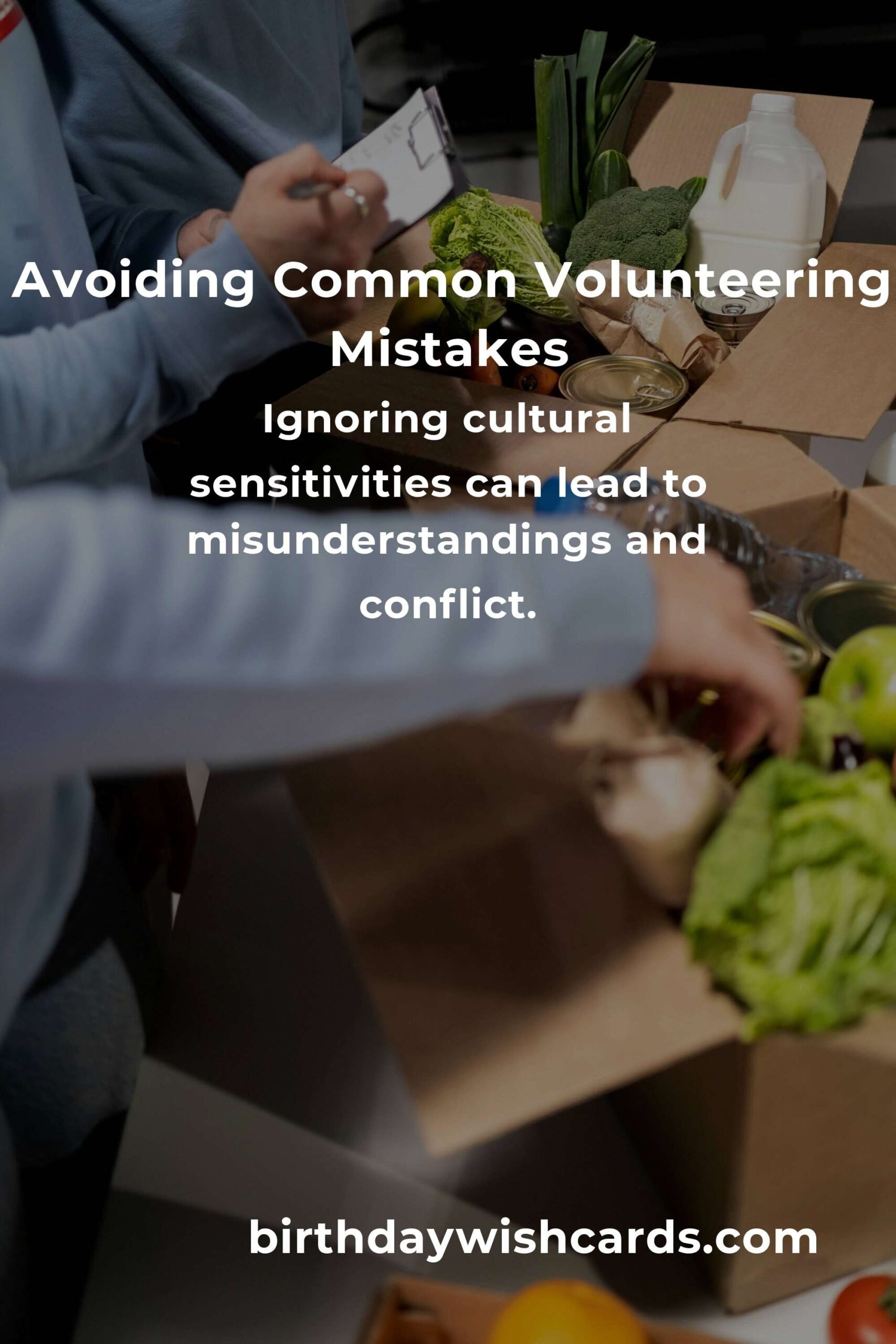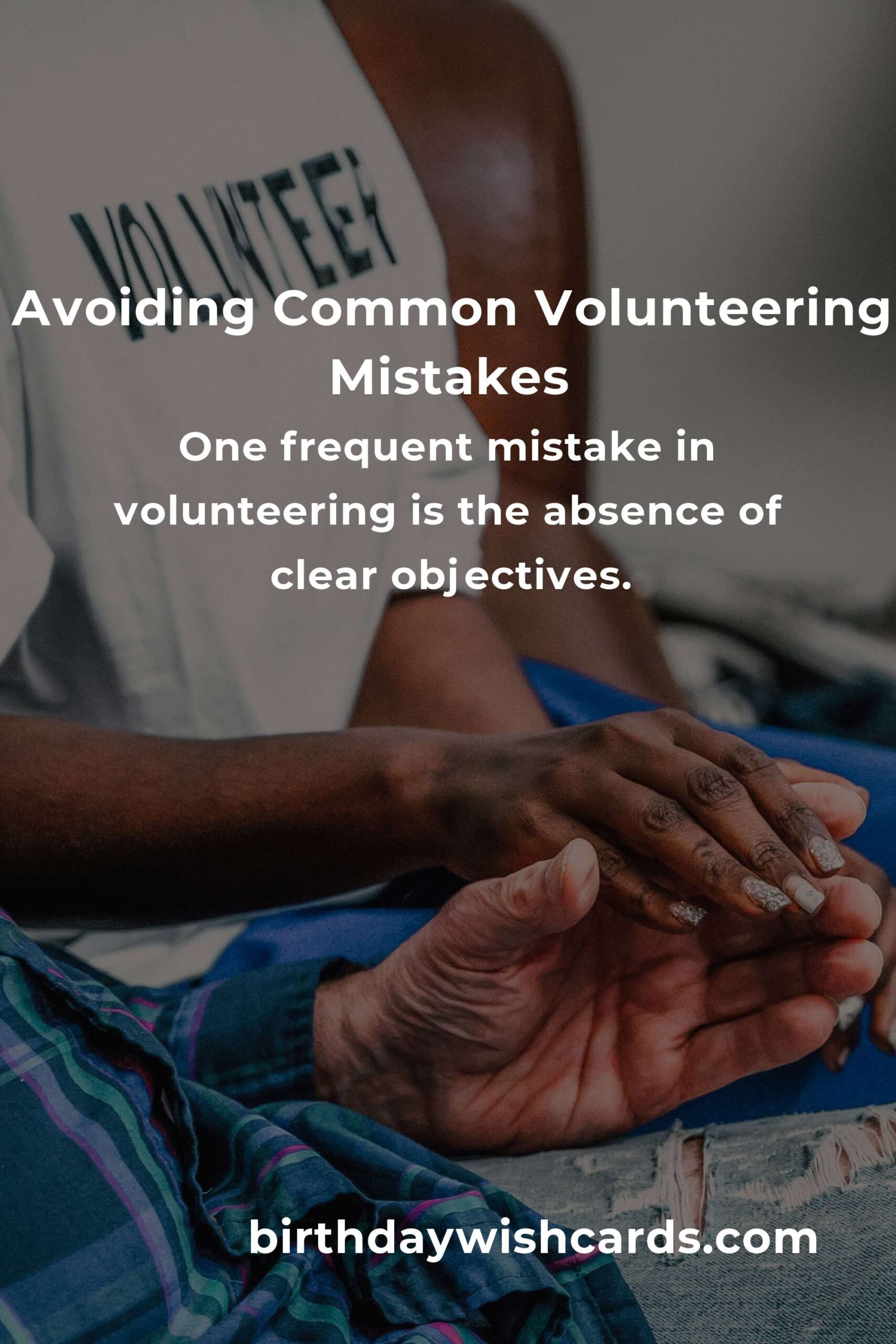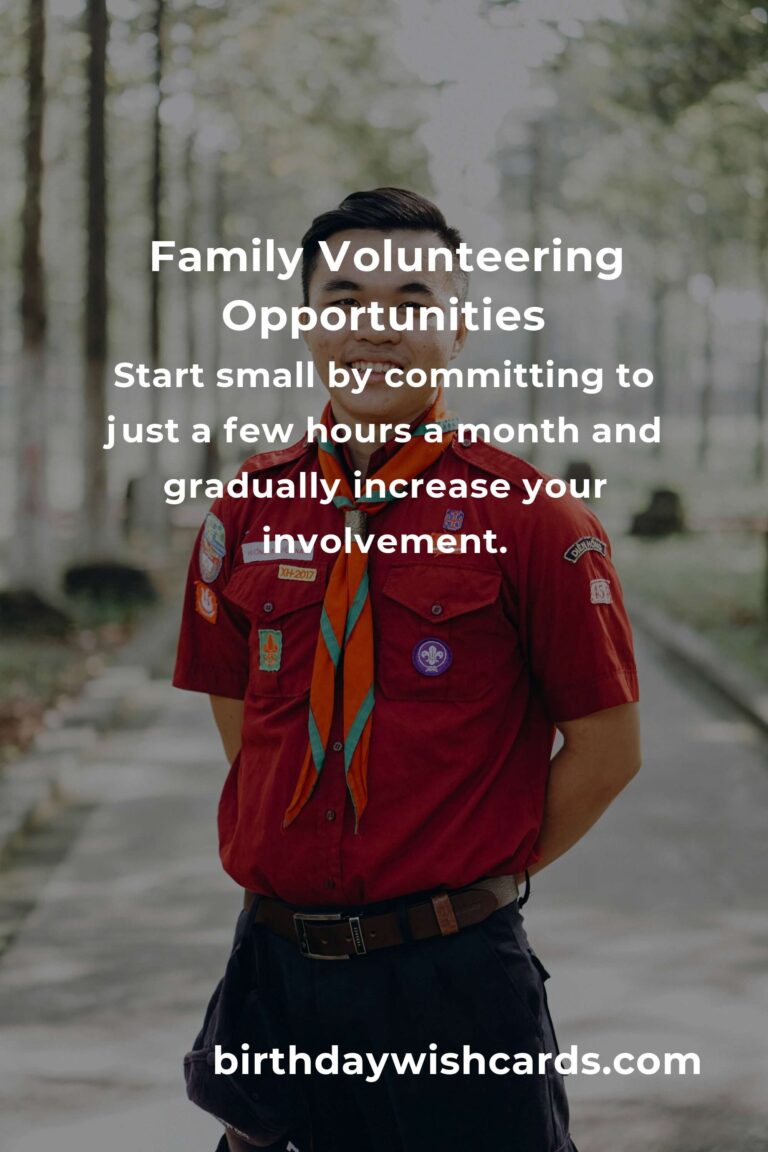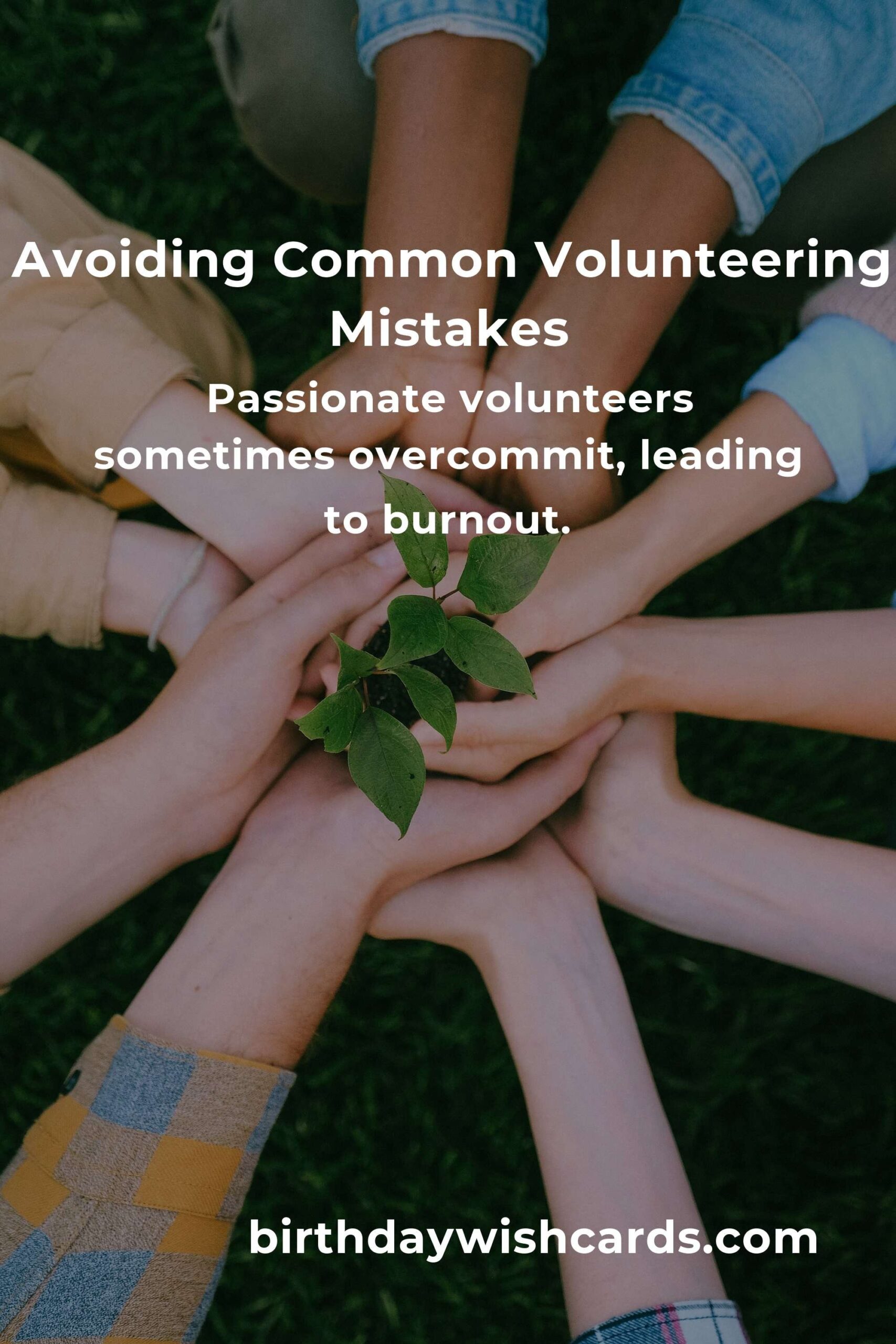
Volunteering is a noble pursuit that brings communities together, fosters personal growth, and supports numerous causes globally. However, even with the best intentions, volunteers and organizations can make mistakes that hinder their effectiveness. Understanding these common pitfalls and learning how to avoid them can enhance the impact of volunteer efforts.
1. Lack of Clear Objectives
One of the most frequent mistakes in volunteering is the absence of clear objectives. When goals are not well-defined, it becomes difficult to measure success or determine the effectiveness of the volunteering efforts. Volunteers may feel lost, unmotivated, or unsure of their roles, which can lead to decreased productivity.
How to Avoid: Before beginning any volunteering activity, establish clear, achievable objectives. Ensure that all volunteers are aware of these goals and understand how their efforts contribute to the larger mission. Regularly review these objectives to maintain focus and motivation.
2. Insufficient Training and Preparation
Volunteers often face challenges due to inadequate training and preparation. Without proper guidance, they may struggle to perform tasks efficiently or safely, leading to frustration and potential harm to the project or themselves.
How to Avoid: Provide comprehensive training sessions that cover the necessary skills and knowledge required for the volunteering activity. This can include workshops, online courses, or hands-on training. Additionally, prepare volunteers by clearly outlining expectations and providing resources to help them succeed.
3. Overcommitting and Burnout
Passionate volunteers sometimes overcommit, taking on more than they can handle. This can lead to burnout, resulting in decreased effectiveness and, eventually, withdrawal from volunteering altogether.
How to Avoid: Encourage volunteers to set realistic limits on their time and energy. Promote a healthy work-life balance by offering flexible volunteering schedules and recognizing the importance of rest and rejuvenation. Regular check-ins can help identify signs of burnout early.
4. Ignoring Cultural Sensitivities
Volunteering often involves working with diverse communities and cultures. Ignorance or disregard for cultural sensitivities can lead to misunderstandings, conflict, and a lack of trust between volunteers and the communities they serve.
How to Avoid: Educate volunteers about the cultural norms and values of the communities they are serving. Encourage open communication and respect for different perspectives. This can be achieved through cultural competency training and by fostering an inclusive environment.
5. Focusing Solely on Short-Term Impact
Some volunteers and organizations prioritize short-term impact over sustainable, long-term change. While immediate results are important, neglecting long-term strategies can undermine the lasting benefits of volunteering efforts.
How to Avoid: Balance short-term goals with long-term plans. Develop strategies that ensure the sustainability of projects and empower communities to continue benefiting from the initiatives after the volunteering period ends.
6. Failing to Recognize Volunteers
Volunteers contribute valuable time and energy, yet their efforts are sometimes taken for granted. A lack of recognition can lead to decreased morale and retention rates.
How to Avoid: Regularly acknowledge and appreciate the contributions of volunteers. This can be done through thank-you notes, public recognition, awards, or small gestures of appreciation. Celebrating successes and milestones can also boost volunteer morale and motivation.
Conclusion
Avoiding these common volunteering mistakes requires awareness, preparation, and a commitment to continuous improvement. By setting clear objectives, providing adequate training, respecting cultural differences, and recognizing volunteer efforts, organizations can create more effective and rewarding volunteering experiences. Ultimately, this leads to a greater positive impact on the communities served.
Volunteering is a noble pursuit that brings communities together. One frequent mistake in volunteering is the absence of clear objectives. Volunteers often face challenges due to inadequate training and preparation. Passionate volunteers sometimes overcommit, leading to burnout. Ignoring cultural sensitivities can lead to misunderstandings and conflict. Some organizations prioritize short-term impact over sustainable change. A lack of recognition can lead to decreased volunteer morale.
#Volunteering #CommunityService #VolunteerTips #CulturalSensitivity #VolunteerRecognition





